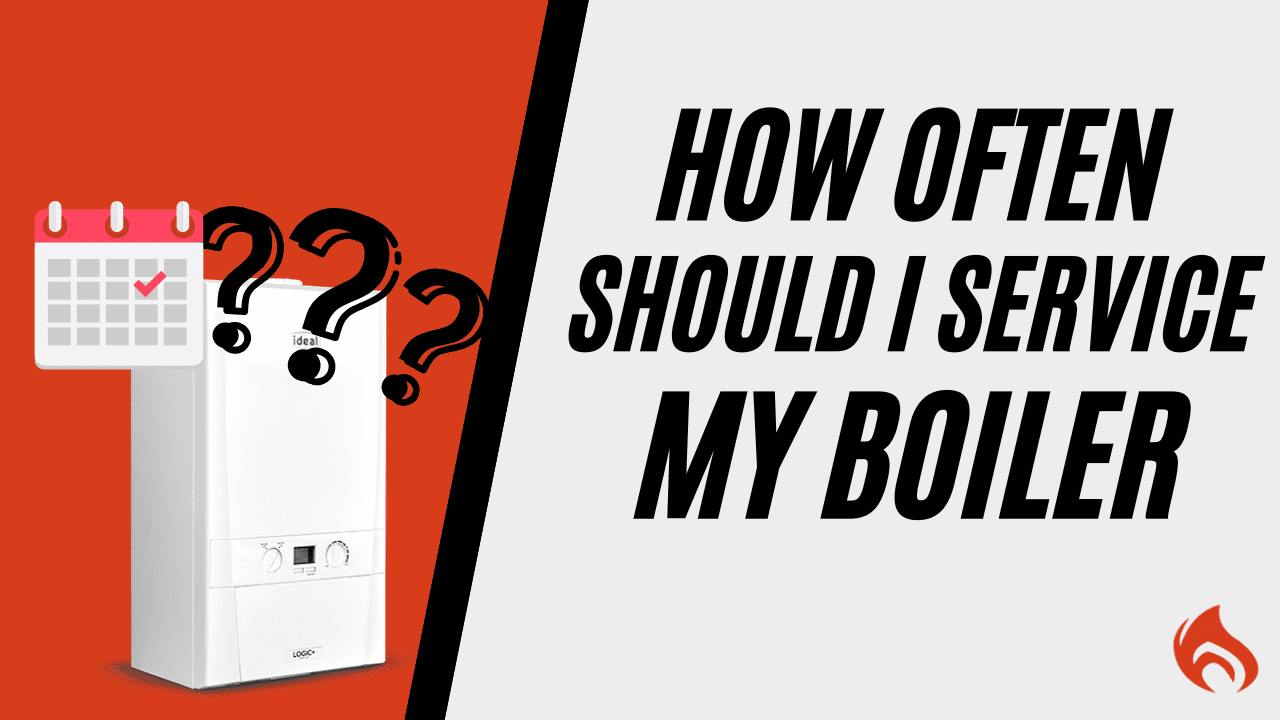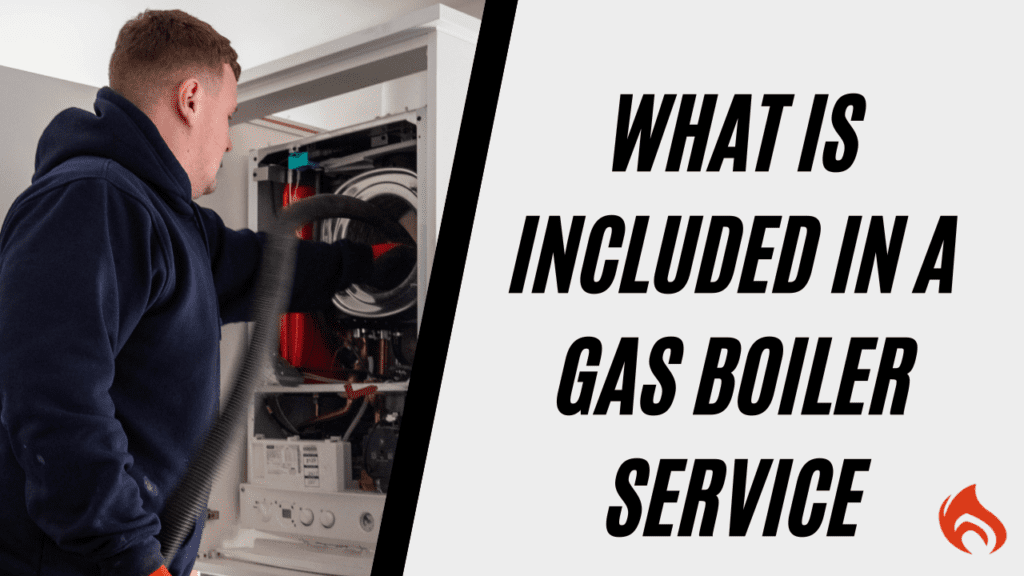
How Often Should I Service My Boiler?
How Often Should I Service My Boiler? Table of Contents Picture this: it’s the middle of winter, your home is

A boiler service is an essential part of maintaining a safe and efficient heating system. Regular servicing not only extends the lifespan of your boiler but also ensures it runs safely, reducing the risk of breakdowns, carbon monoxide leaks, and costly repairs. But what exactly does a boiler service include? In this blog, we’ll walk you through what happens during a professional boiler service and why it’s important.
A regular boiler service provides several benefits, including:
A boiler service includes crucial checks for carbon monoxide leaks, which can be fatal if undetected. Carbon monoxide is an odourless and colourless gas that can cause serious health issues, including dizziness, nausea, and even death in extreme cases. An engineer will test for leaks and ensure all ventilation and flue systems are working correctly to prevent any dangerous gas buildup. Additionally, the service includes inspecting other safety components, such as pressure relief valves and thermostats, to ensure the system operates within safe parameters.
A well-maintained boiler operates at its peak efficiency, using less energy to heat your home and water. Over time, dust, soot, and debris can build up inside the boiler, causing it to work harder than necessary. A service involves cleaning key components such as the burner, heat exchanger, and fan, helping to improve overall efficiency. Increased efficiency means lower energy consumption, which translates into reduced heating bills and a more eco-friendly home.
Minor issues in a boiler can escalate into major, costly problems if left unchecked. Regular servicing allows an engineer to identify and fix any wear and tear before it turns into a complete breakdown. For example, a small leak in a pipe or a failing seal can lead to water damage or system failures if not addressed promptly. Preventative maintenance can save you from unexpected expenses and the inconvenience of having no heating or hot water during the colder months.
Boilers are a significant investment, and ensuring their longevity is important for getting the best value from your heating system. A well-maintained boiler can last up to 15 years or more, while neglected systems often require costly repairs or replacements much sooner. Routine servicing helps to keep all components functioning optimally, reducing the likelihood of wear and tear that could shorten the lifespan of your boiler.
Many boiler manufacturers require annual servicing to keep the boiler’s warranty valid. If you experience a boiler fault and need to make a warranty claim, failing to provide evidence of regular servicing may result in your claim being denied. Having a Gas Safe registered engineer service your boiler annually ensures that you comply with warranty terms, protecting you from unexpected repair costs.

If you notice any of the following signs, it’s crucial to book a boiler service as soon as possible, as these issues can lead to more significant problems or even safety hazards:
If you notice any of these signs, don’t wait—book a boiler service immediately to prevent further damage and ensure your home remains safe and warm.
A professional boiler service typically includes a series of checks, inspections, and tests to ensure your boiler is operating safely and efficiently. Here’s what you can expect:
1. Visual Inspection
The engineer will start by visually inspecting the boiler and its components to check for any obvious signs of damage, corrosion, or leaks. They will also inspect the flue (the pipe that removes waste gases) to ensure it is correctly fitted and free from obstructions.
2. Checking the Boiler’s Controls
The heating engineer will test all the boiler’s controls and thermostat settings to ensure they are functioning properly. This helps ensure that your boiler responds as it should when adjusting heating and hot water settings.
3. Cleaning Internal Components
Dust and debris can build up inside a boiler over time, reducing efficiency and potentially causing malfunctions. The engineer may clean key components such as the burner, heat exchanger, and fan to ensure optimal performance.
4. Checking the Flue and Ventilation
The flue is responsible for safely expelling waste gases from the boiler. The engineer will inspect it for any blockages or leaks and ensure it is properly installed and ventilated to prevent harmful gases from entering your home.
5. Gas Pressure and Flow Check
The engineer will check the gas pressure to ensure the boiler is receiving the correct amount of gas. Incorrect gas pressure can lead to inefficiencies and even potential safety hazards.
6. Combustion Analysis
Using a flue gas analyser, the engineer will test the gases emitted by the boiler to make sure it is burning fuel efficiently and safely. If the readings show any irregularities, adjustments may be made to improve efficiency.
7. Checking for Gas and Water Leaks
A key part of the service is checking for any gas or water leaks that could pose a danger. Even small leaks can lead to serious safety hazards and expensive repairs if left undetected.
8. Testing Safety Devices
Boilers have built-in safety devices to prevent malfunctions or hazardous situations. The engineer will test these devices, including pressure relief valves and thermostats, to ensure they are working correctly.
9. Checking Boiler Seals and Pipework
Loose or worn-out seals can lead to leaks and inefficiencies. The engineer will inspect all seals and pipe connections to ensure they are secure and in good condition.
10. System Pressure Check
For pressurised systems, such as combi and system boilers, the engineer will check the pressure and top up if necessary to ensure the heating system is operating at the correct level.
Once the service is complete, the heating engineer will provide a service report outlining what was checked and if any issues were found. This report serves as proof of maintenance, which may be required to uphold the manufacturer’s warranty or home insurance policies.
If any issues or potential problems are detected, the engineer will explain them in detail and recommend the best course of action. Some minor adjustments or repairs may be carried out on the spot, but if more extensive repairs or replacement parts are needed, the engineer will advise on the next steps and provide an estimated cost for the work.
Additionally, they may offer general advice on improving your boiler’s efficiency, such as adjusting thermostat settings, bleeding radiators, or insulating pipework to retain heat better. They might also recommend scheduling further maintenance if they suspect underlying issues that need more attention.
A well-documented service record helps ensure the continued safe and efficient operation of your boiler and can also be valuable if you decide to sell your home, as prospective buyers often appreciate evidence of regular maintenance.
Most manufacturers and gas engineers recommend servicing your boiler once a year. Regular servicing ensures your boiler remains safe, efficient, and in good working condition, particularly before the colder months when it will be used more frequently. Servicing before winter can help detect and fix any potential issues before you rely on your heating system daily.
If your boiler is older or has had previous issues, more frequent servicing may be advisable to keep it running smoothly. For landlords, annual servicing is a legal requirement under the Gas Safety (Installation and Use) Regulations 1998 to ensure tenant safety.
Skipping annual servicing can lead to efficiency loss, higher energy bills, and even boiler breakdowns at the most inconvenient times. Regular servicing also helps ensure that your system meets legal and warranty requirements, giving you peace of mind that your heating system is in top condition.
If it’s been over a year since your last boiler service, now is the time to schedule one. A professional service will help keep your home warm, safe, and energy-efficient.
By arranging a service with a Gas Safe registered engineer, you can ensure that your heating system operates at peak performance, reducing the likelihood of unexpected breakdowns. Regular servicing can also lower energy consumption, saving you money on your bills while ensuring your home remains comfortable throughout the year.
Don’t wait for your boiler to develop a problem be proactive and book your service today. Ensuring your boiler is well maintained will give you peace of mind, knowing that you and your family are protected from potential hazards such as carbon monoxide leaks and inefficient heating. Contact a trusted heating professional and keep your home running smoothly!

How Often Should I Service My Boiler? Table of Contents Picture this: it’s the middle of winter, your home is

Combi Boiler vs Conventional Boiler: What’s the Difference? Table of Contents Choosing the right boiler for your home isn’t just